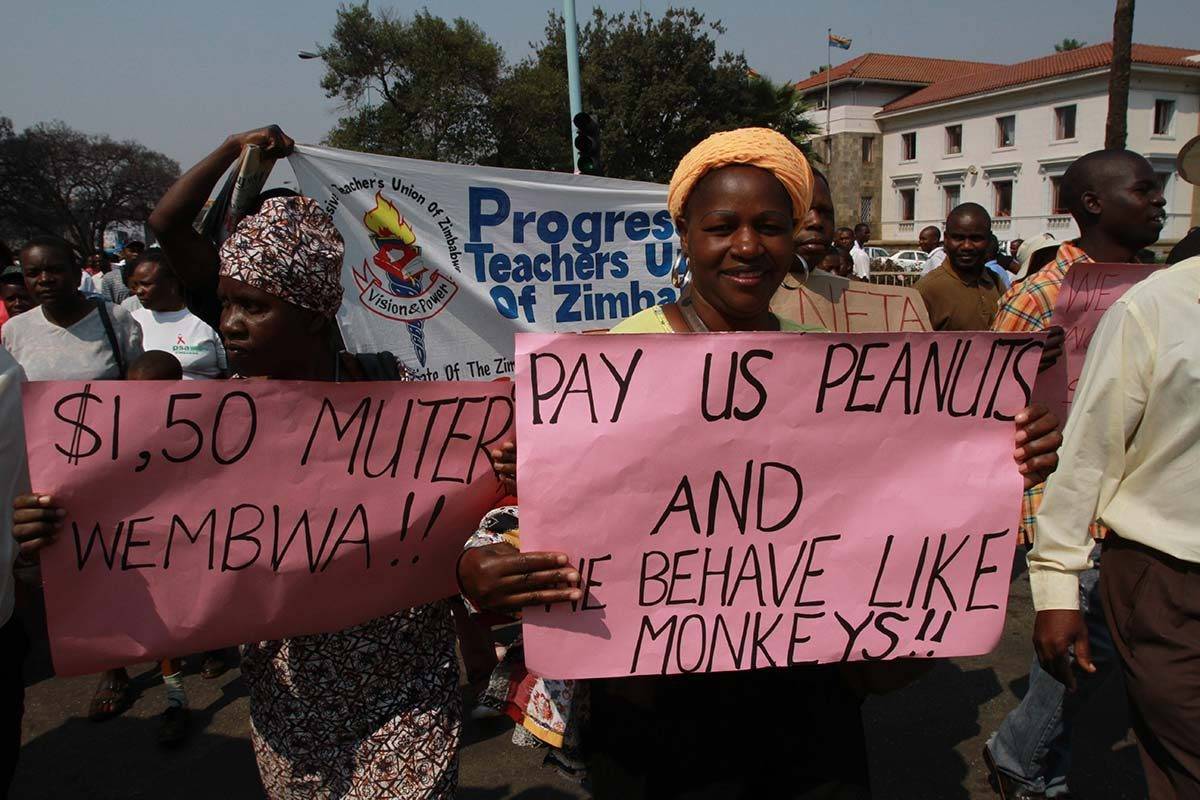Zimbabwean Teachers Reduced To ‘Mere Beggars’ As Prices Of Basic Goods Continue To Skyrocket

Teachers strike could be on the cards in Zimbabwe if the government fails to meet the demands by teachers.
Zimbabwe’s Progressive Teachers’ Union Secretary-General, Raymond Majongwe has issued a statement through social media cautioning that a strike could take place making it difficult for schools to reopen come third term.
In a Twitter post, he wrote, “Teachers are saying 3rd Term will be difficult to reopen. Teachers have been reduced to mere beggars. Govt should listen. These Heroes of this sector can’t wallow in poverty forever.”
Prices of basic commodities continue to skyrocket increasing the cost of living. Currently, many Zimbabweans can hardly afford food. Most people are surviving on one meal a day and breakfast has become a luxury. Majority of the citizens rely on cheaper public schools to educate their children.
The average public school teacher’s salary is USD 100, using black market exchange rates relied on by most businesses.
The Zimbabwe Teachers Association earlier said teachers are languishing in abject poverty after salaries fell to below USD 100 monthly end of last year following the devaluation of the local currency.
The prices of basic commodities have been increasing as the cost of fuel rises. Health services remain affordable for most Zimbabweans after health providers hiked their costs by between 30 and 40 percent.
Zimbabwe’s government currently spends more than 90 percent of its national budget on remuneration. Earlier, the government promised to reduce the spend on pay to around 70, but going by the recent demands from workers, chances are high that the authorities could fail to meet their target.
When President Emmerson Mnangagwa took office in July 2018, he promised to help Zimbabwe regain its once-prosperous economy and there was so much hope, but as stands, the economy’s condition is moving from better to worse.
Other than the endless power outages, the country is facing dollar shortages that have crippled the economy forcing some businesses to close shops. The government banned the use of foreign currencies including the US dollar after introducing a new Zimbabwean currency which was made the sole legal tender.
Featured Image Courtesy: Twitter